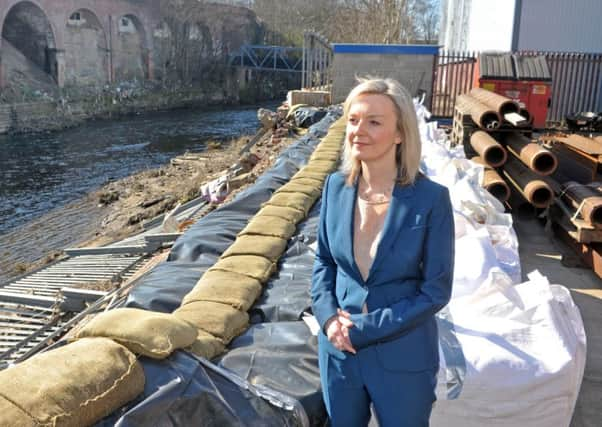YP Comment: Flooding '“ and why it's time to face facts


After a lethargic response to the floods that caused to much devastation across Leeds, Yorkshire and the North, the critique published by the Environmental Audit Committee under Wakefield MP Mary Creagh suggests lessons have, once again, not been learned.
Like so many reviews of this type, it is not only abundantly clear that there is insufficient money to protect communities from rapidly rising rivers – but there is not even a basic framework to monitor the progress being made on the installation of new defences.
Advertisement
Hide AdAdvertisement
Hide AdThere can only be one reason for this; namely the reluctance of the Government to draw attention to the disproportionate amount of money spent on alleviation schemes in the Home Counties, not least in David Cameron’s own constituency, and at the expense of major projects for Leeds and elsewhere which were recommended by the Pitt review into the 2007 floods before being put on hold when the Tories came to power.
Three changes need to happen as a matter of urgency. First the Prime Minister and Chancellor can no longer remain in denial about the level of under-funding. Second, the Government, Environment Agency and others need to work more closely with local councils which, with the best will in the world, do not have the resources to fund the level of investment required. Third, an up-to-date flood plan needs to be published each year and scrutinised by Parliament.
As such, it’s time for Ministers to shift the focus onto preventative strategies rather than reacting to events. By then, it is already too late for those homes and businesses left under feet of filthy floodwater.
Summit tokenism: Leeds needs national leadership
THE mistrust in Leeds Council is such that tomorrow’s transport summit, called in the wake of the city’s trolleybus scandal, is already being written off by some as a “token gesture”. Even though £72m of public money went to waste on a plan that would not have improved access to economically deprived areas before this flawed scheme was stopped by a Government inspector, there has still been no apology – or resignations.
Advertisement
Hide AdAdvertisement
Hide AdInstead many of these self-same individuals believe they are best qualified to draw up, and implement, a new blueprint for Leeds which is now the largest city in Europe without a light rail system. They need to think again after Martin Farrington, the council’s director of city development, had to concede at the trolleybus inquiry that “transport planning” was not his specialist subject. Liz Hunter – the council’s head of transport strategy – will need to address this omission in her presentation to delegates.
Yet the summit must also take on board the trenchant criticisms of Simon Cooke, the Tory leader on Bradford Council. Transport policy decisions taken by Leeds Council have consequences for the rest of West Yorkshire and future decisions cannot be left with a clique of “ill qualified and insufficiently informed” officials. National – even international – experts are needed to bring a new perspective, and ensure that any new scheme not only cuts congestion but provides taxpayers with value for money. If this offends those leaders who have not welcomed recent scrutiny, then so be it – accountability is a key part of their duties and will be integral if there is to be no repeat of recent follies.
Deadline dilemma: Voters have themselves to blame
FOR once, the Government is not totally blame for websites crashing because so many people were trying to register to vote in the EU referendum prior to Tuesday’s original deadline. Despite emergency legislation now being passed to give latecomers another 48 hours, fault rests with those individuals who left it to the last minute – literally – to complete the online form.
The date of the referendum has been known since February 20 when the Cabinet endorsed the poll. Since then, every person aged over 18 has had the right to exercise their vote in local elections on May 5, when they could also choose a new crime commissioner. Indeed, the media went out of its way to highlight the looming cut-off. As adults, those concerned need accept some responsibility for their personal affairs.
In light of the sacrifices made by their forebears to protect democratic freedoms, it’s not too much to ask, is it?